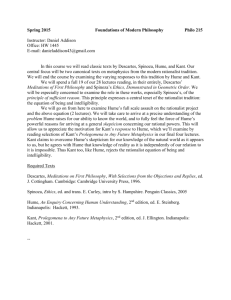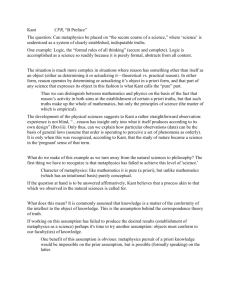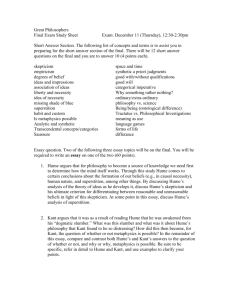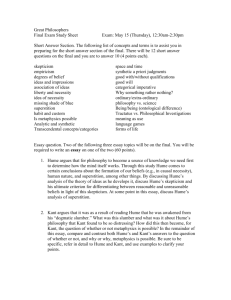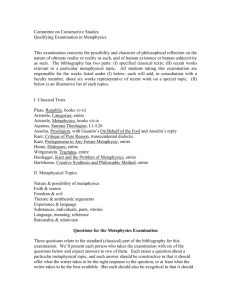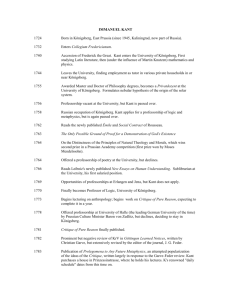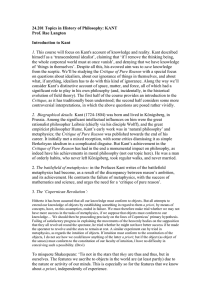Department of Philosophy
advertisement
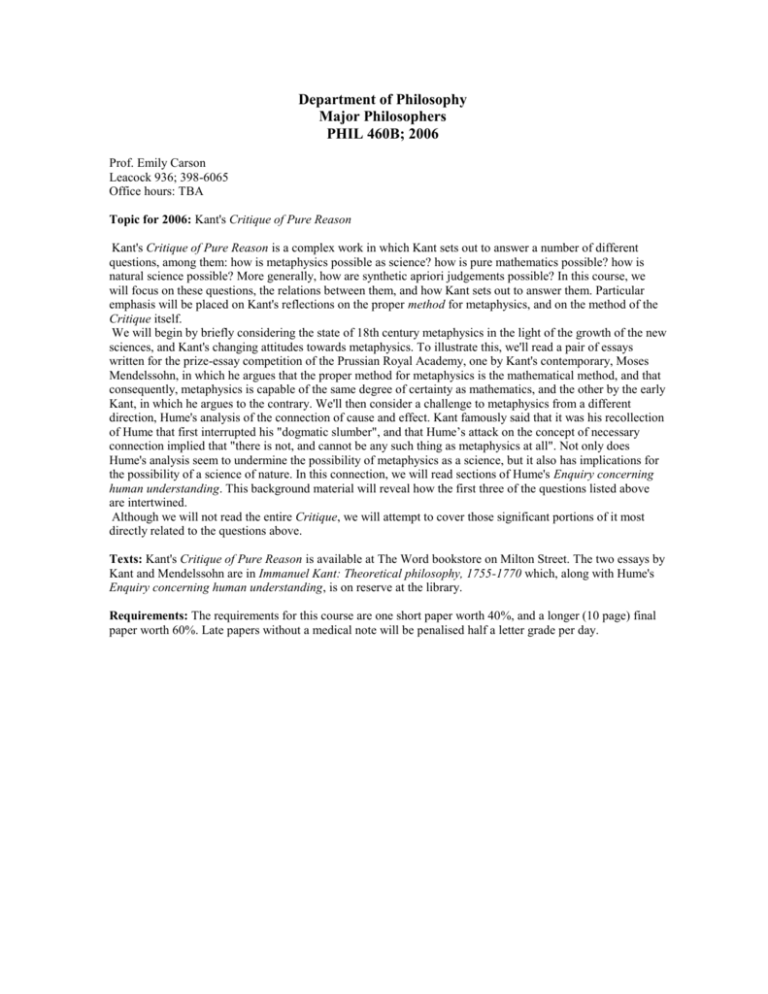
Department of Philosophy Major Philosophers PHIL 460B; 2006 Prof. Emily Carson Leacock 936; 398-6065 Office hours: TBA Topic for 2006: Kant's Critique of Pure Reason Kant's Critique of Pure Reason is a complex work in which Kant sets out to answer a number of different questions, among them: how is metaphysics possible as science? how is pure mathematics possible? how is natural science possible? More generally, how are synthetic apriori judgements possible? In this course, we will focus on these questions, the relations between them, and how Kant sets out to answer them. Particular emphasis will be placed on Kant's reflections on the proper method for metaphysics, and on the method of the Critique itself. We will begin by briefly considering the state of 18th century metaphysics in the light of the growth of the new sciences, and Kant's changing attitudes towards metaphysics. To illustrate this, we'll read a pair of essays written for the prize-essay competition of the Prussian Royal Academy, one by Kant's contemporary, Moses Mendelssohn, in which he argues that the proper method for metaphysics is the mathematical method, and that consequently, metaphysics is capable of the same degree of certainty as mathematics, and the other by the early Kant, in which he argues to the contrary. We'll then consider a challenge to metaphysics from a different direction, Hume's analysis of the connection of cause and effect. Kant famously said that it was his recollection of Hume that first interrupted his "dogmatic slumber", and that Hume’s attack on the concept of necessary connection implied that "there is not, and cannot be any such thing as metaphysics at all". Not only does Hume's analysis seem to undermine the possibility of metaphysics as a science, but it also has implications for the possibility of a science of nature. In this connection, we will read sections of Hume's Enquiry concerning human understanding. This background material will reveal how the first three of the questions listed above are intertwined. Although we will not read the entire Critique, we will attempt to cover those significant portions of it most directly related to the questions above. Texts: Kant's Critique of Pure Reason is available at The Word bookstore on Milton Street. The two essays by Kant and Mendelssohn are in Immanuel Kant: Theoretical philosophy, 1755-1770 which, along with Hume's Enquiry concerning human understanding, is on reserve at the library. Requirements: The requirements for this course are one short paper worth 40%, and a longer (10 page) final paper worth 60%. Late papers without a medical note will be penalised half a letter grade per day.



